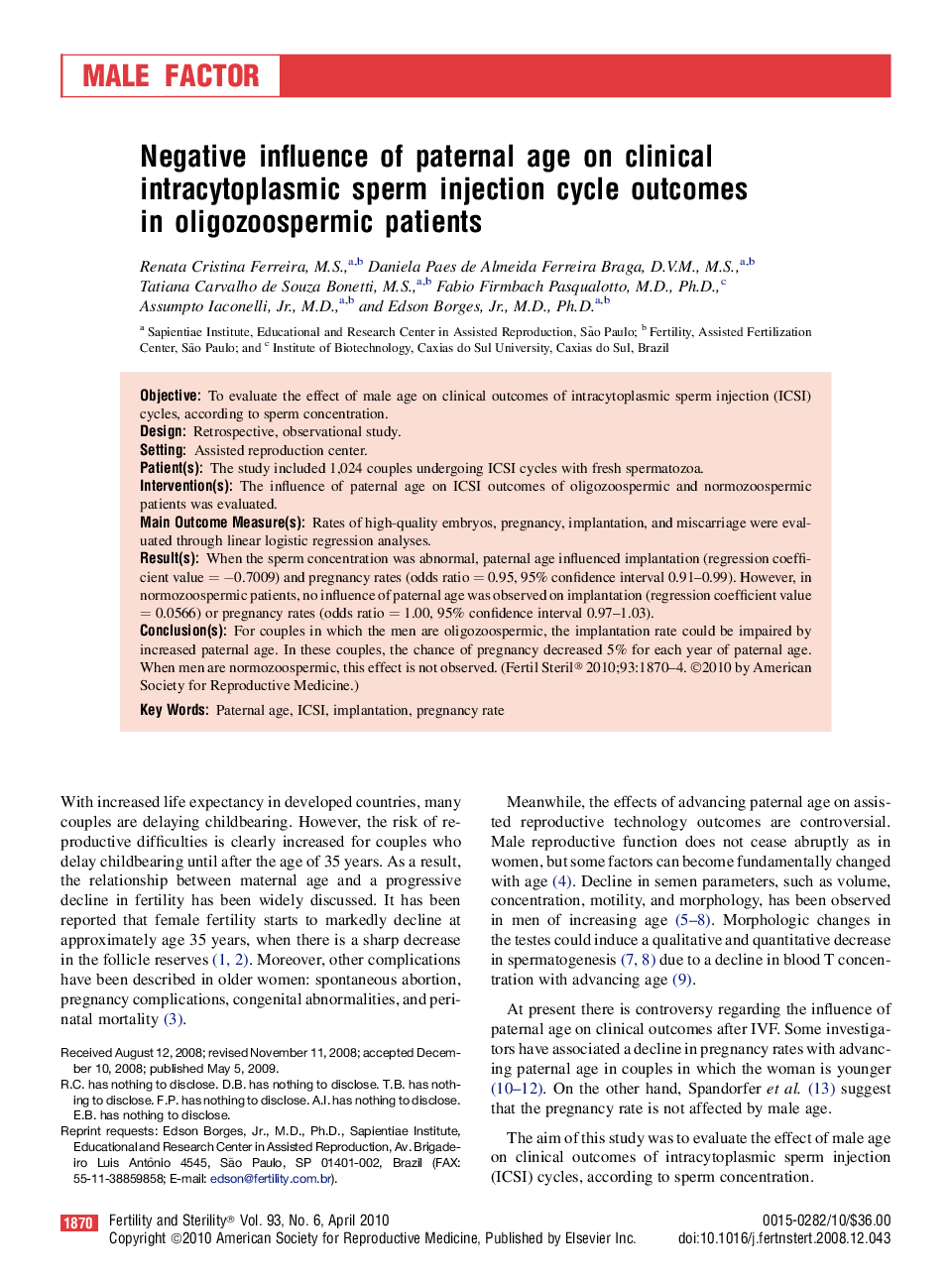| Article ID | Journal | Published Year | Pages | File Type |
|---|---|---|---|---|
| 3940828 | Fertility and Sterility | 2010 | 5 Pages |
ObjectiveTo evaluate the effect of male age on clinical outcomes of intracytoplasmic sperm injection (ICSI) cycles, according to sperm concentration.DesignRetrospective, observational study.SettingAssisted reproduction center.Patient(s)The study included 1,024 couples undergoing ICSI cycles with fresh spermatozoa.Intervention(s)The influence of paternal age on ICSI outcomes of oligozoospermic and normozoospermic patients was evaluated.Main Outcome Measure(s)Rates of high-quality embryos, pregnancy, implantation, and miscarriage were evaluated through linear logistic regression analyses.Result(s)When the sperm concentration was abnormal, paternal age influenced implantation (regression coefficient value = −0.7009) and pregnancy rates (odds ratio = 0.95, 95% confidence interval 0.91–0.99). However, in normozoospermic patients, no influence of paternal age was observed on implantation (regression coefficient value = 0.0566) or pregnancy rates (odds ratio = 1.00, 95% confidence interval 0.97–1.03).Conclusion(s)For couples in which the men are oligozoospermic, the implantation rate could be impaired by increased paternal age. In these couples, the chance of pregnancy decreased 5% for each year of paternal age. When men are normozoospermic, this effect is not observed.
